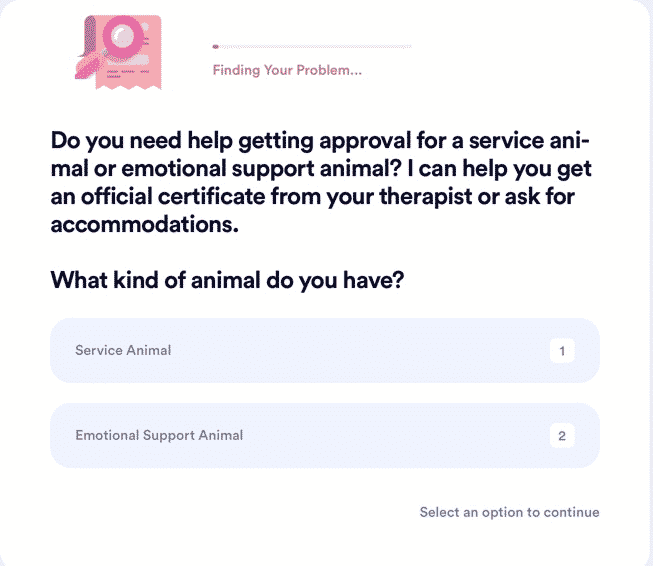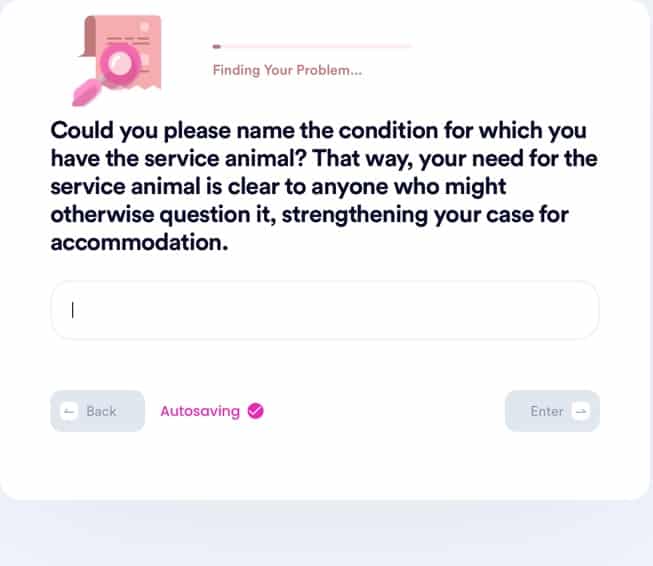Can a Pitbull Be an Emotional Support Animal?
Dogs that are perceived as aggressive have long been targeted by the media as dangerous threats to the public, leading to fear-based misconceptions about specific breeds. In previous decades, breeds such as Doberman Pinschers, Rottweilers, and German Shepherds have been unfairly singled out and even banned by city policymakers. Today, that stigma falls upon the American Pit Bull Terrier, leading many to question if a or are they a safe choice for a family pet.
Despite shifting public perceptions, more than 700 cities in the United States have enacted Breed Specific Legislation (BSL) affecting dozens of dog breeds. The truth is, aggressive behavior exhibited by some dogs is a direct reflection of their owner's training and handling rather than an inherent characteristic of their breed. Pitbull advocates are trying to spread the word that Pitbulls are naturally quite friendly and loving, and make excellent family pets. If you need to make accommodations for your pitbull as an emotional support animal (ESA), DoNotPay can help!
What Is the History of the Pitbull?
The origins of pitbull-type dogs can be traced back to the early 19th-century in England, Ireland, and Scotland. Throughout the 1800s, demand for fighting dogs used in bear- and bull-baiting resulted in the experimental crossbreeding of various English Bulldog and Terrier breeds. Eventually, British Parliament enacted the Cruelty to Animals Act of 1835, and the cruel blood sport was outlawed. Still, Pitbulls continued to be bred for dog-fighting and ratting—the name "pit" originated from the rat pits created as part of the public spectacle. As pit bulls began making their way from Europe to North America, they began taking on a more all-purpose role as frontier dogs responsible for herding cattle and guarding livestock. As loyal and loving companions, especially with children, the pitbull even earned the working dog title of "Nanny Dog."
The term "Pit Bull" doesn't refer to one breed, but is rather a blanket term for several Bully breeds that got lumped together. The four registered breeds that are recognized as Pitbulls are:
- The American Pit Bull Terrier
- The American Staffordshire Terrier
- The American Bully
- The Staffordshire Bull Terrier
Are Pitbulls Banned or Restricted?
Unfortunately, Pit Bull breeds earned a bad reputation in the 1980s after being linked to underground dog fighting rings and urban crime. Once the public perceived them as dangerous dogs, animal shelters started filling with Pitbulls believed to be "unadoptable." As a result, cities began restricting the demonized breed to enforce public safety, banning Pitbulls from public spaces such as parks, restaurants, and housing facilities.
Breed-specific legislation (BSL) is still in effect in various municipalities throughout the United States, and in some cases, Pitbulls may still be banned state-wide. BSL is hard to enforce and arguably ineffective at protecting communities, which is why breed-specific bans are hotly contested and constantly changing.
You may have to conduct further research to learn whether pit bulls are banned in your state. Here are the Top Ten Least Pitbull-Friendly States (based on the number of BSL laws):
- Iowa
- Kansas
- Ohio
- Missouri
- Wisconsin
- Mississippi
- Arkansas
- Michigan
- Louisiana
- Kentucky
Are Pitbulls Well-Behaved?
Pitbulls are naturally gentle creatures—highly intelligent, eager to please, and easy to train. The American Temperament Test Society (ATTS) reports that over 86% of Pitbulls tested exhibited excellent temperaments, the only breed scoring higher being Labradors at 92%. Early socialization and obedience training will ensure a pitbull will be well-behaved, making it an excellent candidate for therapy and emotional support.
Can I Have a Pitbull as an ESA?
Yes, a pitbull is allowed to be an emotional support animal (ESA). The Americans with Disabilities Act (ADA) has no breed restrictions for service dogs, although it does make a distinction between psychiatric service animals and emotional support animals. As an emotional support animal (ESA) your pitbull is still protected from breed discrimination in public housing situations.
How Do I Tell My Landlord My Pitbull Is an ESA?
Emotional Support Animals are protected under the Fair Housing Act, which means housing providers are obligated to accommodate the therapy animals of their tenants. Landlords with pet restrictions in place must make exceptions for service animals and ESAs of any prohibited breed when you produce an ESA letter for housing unless that animal poses a direct threat to the safety of others.
If you're wondering how to go about registering a , DoNotPay can help you provide the right documentation for your landlord in the form of a valid ESA letter.
How Do I Get My Own ESA Letter?
If your landlord requires proof that your pitbull is a legitimate emotional support animal, you will need an official ESA letter signed by a licensed mental health professional. ESA letters are also required by some airlines for passengers flying with their emotional support animal. Here are the steps you'll need to follow to secure your own ESA letter.
Step 1: Arrange a Consultation With Your Doctor
If you've never discussed your mental health needs with your doctor before, begin by booking an appointment with your local practitioner. Your doctor will need to confirm that you meet the criteria for a psychological condition or mental illness that would benefit from an emotional support animal.
Step 2: Talk to Your Doctor or Licensed Mental Health Professional
It's important to speak up about your need for an emotional support animal. It can be a difficult task, especially if your doctor feels you are seeking an ESA letter under false pretenses. (Some people lie about their ESA just to get their pet on an airline.) Make sure your doctor understands how vital an ESA is for improving the quality of your life, but be open to discussing alternative treatments for your particular mental illness, such as therapy and medication. Remember that ESA letters are only valid when written by a licensed mental health professional (LMHP).
| Any of the following licensed healthcare specialists can write up an ESA letter: |
|
| Some of the common mental conditions that qualify individuals to receive an ESA letter: |
|
Step 3: Getting Your ESA Letter
Once your doctor or LMHP confirms your mental disability and your need for an emotional support animal, you can expect a follow-up ESA letter to arrive relatively quickly. To be considered valid, your ESA letter should contain the following:
- The letterhead and signature of your doctor or LMHP
- Their license information (ie: date of issue, state, and license number)
- Address of their practice, and contact information
- Confirmation of your mental health disability and ESA 'prescription'
- The name, species, and breed of your emotional support animal
- A formal request to the landlord (or airline) for ESA accommodation
Step 4: Paying for Your ESA Letter
Acquiring an ESA letter can be costly, although this varies from state to state. It also depends on how you obtained your letter—some doctors charge up to $75 for the paperwork, while ESA registration websites can cost between $100-$200. Remember also that an ESA letter for airline travel expires after one year from its issue date, and you'll have to pay again for a renewal. The only way to get an ESA letter for free is if you are already in therapy with a licensed LMHP.
How Can Donotpay Help Me With My ESA-Related Needs?
Individuals who suffer from mental health difficulties can become easily overwhelmed by even small tasks, so it's understandable if you need help sorting out everything you need to accommodate your emotional support animal. You can save yourself time, money, and a lot of emotional distress by putting your trust in DoNotPay's new Service and Emotional Support Animals product. Here's how it works:
- Search "service animal" on DoNotPay.

- Select the type of issue you need help with, including contacting your landlord about your ESA/service animal, asking your airline about ESA options, or requesting ESA/service accommodations at other venues.

- Answer a series of questions about your current situation and the details of your ESA/service animal, so we can generate the best results for you.

Bingo! When you leave the work to us, you can rest easy knowing DoNotPay will follow up with you with fast answers. Depending on your submitted issue, we'll contact your landlord about your ESA, reach out to airlines regarding their ESA policies, find you an affordable online ESA letter writing service, or send a letter to your mental health professional requesting an ESA letter.
How Else Can DoNotPay Help Me?
Don't ever be afraid to reach out for help, especially as it relates to your emotional and mental well-being. The products and services offered by DoNotPay are designed to make your life easier and promise to deliver results quickly. Alongside helping you register your Pitbull as a therapy dog, we can arrange answers for a whole slew of real-life issues, such as:
- Requesting Sick Leave
- Filing Neighbor Complaints
- Send Demand Letters To in Small Claims Court
- Help with Credit Cards
- Submitting Insurance Claims
Check with today to learn more!


